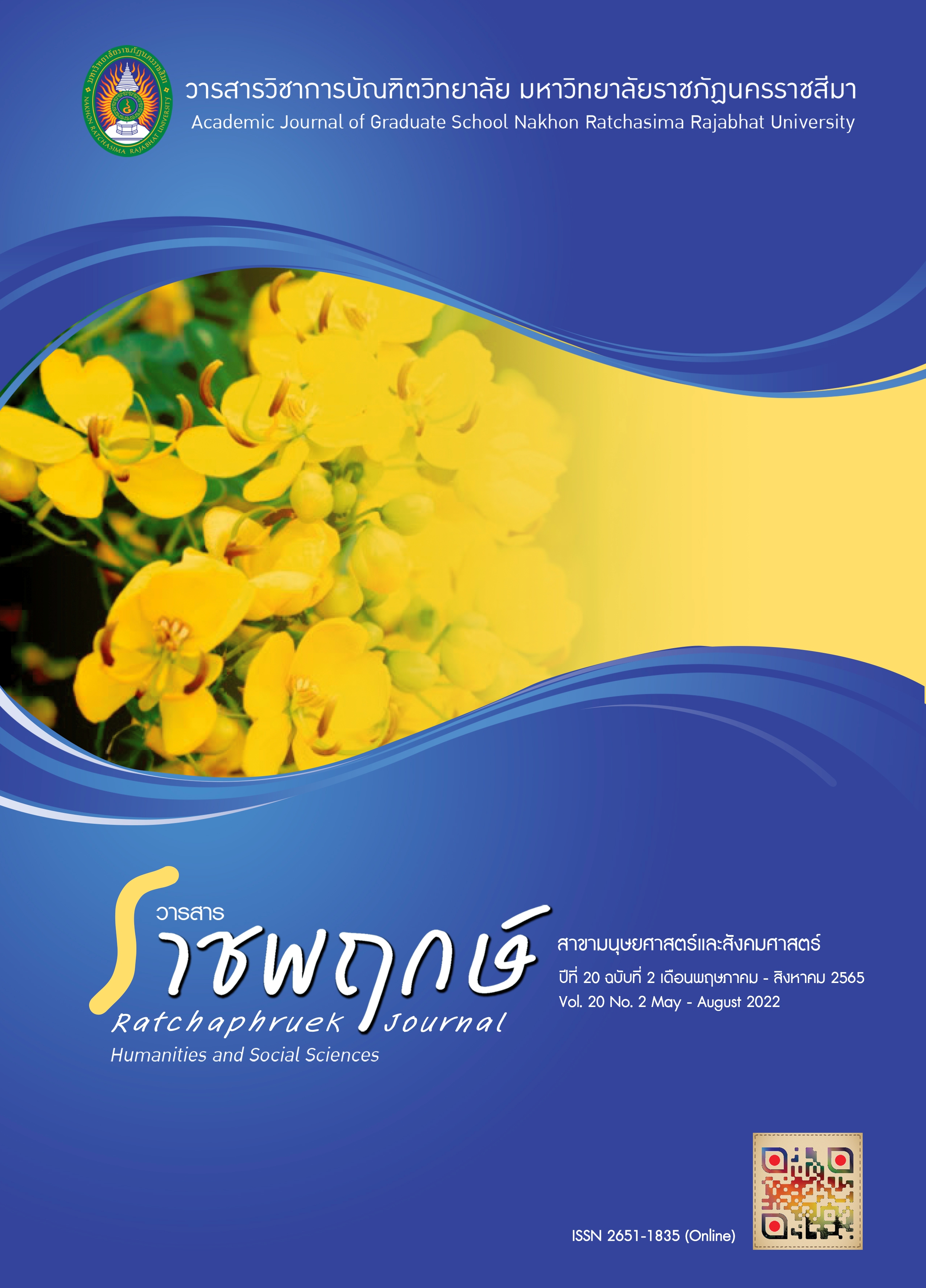Causal Structural Relationship Model of Youth Leisure Behavior
Main Article Content
Abstract
The purposes of this study were to examine the consistency of a hypothetical causal relationship model of leisure behavior with empirical data, and the influence of causal relationship factors. Hypothesis testing indicated that the hypothetical model was consistent with the empirical data. The samples were 320 high school students in Nakhon Ratchasima province, which were obtained from multistage random sampling. Data of collection contained one questionnaire with 6 parts: 12 items in each. The verification method for determining the quality of a measuring instrument was a content validation check. and structural integrity check (IOC). The results revealed that the model fit to the empirical data, leisure awareness self-awareness leisure skills and social interaction, which had a direct influence on the decision making of 81 percent. Decision making variables directly influenced on leisure behavior, which were leisure awareness, self-awareness, leisure skills and social interaction indirect influence on leisure behavior by passing on the decision making. All variables accounted for 76 percent of the variance of leisure behaviors.
Article Details

This work is licensed under a Creative Commons Attribution-NonCommercial-NoDerivatives 4.0 International License.
References
กระทรวงศึกษาธิการ. (2563). สภาวการณ์การจัดการเรียนรู้เชิงพื้นที่ในบริบทประเทศไทย. สํานักคณะกรรมการศึกษาขั้นพื้นฐานกระทรวงศึกษาธิการ. กรุงเทพฯ: โรงพิมพ์ชุมนุมสหกรณ์การเกษตรแห่งประเทศไทย.
ปัญจนาฏ วรวัฒนชัย. (2563). พฤติกรรมที่เป็นปัญหาของสังคม. วารสารสารสนเทศ, 19(2), น. 1-16.
วิพงษ์ชัย ร้องขันแก้ว. (2557). การพัฒนาโปรแกรมการศึกษาการใช้เวลาว่างสำหรับเด็กชั้นประถมศึกษาตอนปลายในสถานสงเคราะห์.วารสารคณะพลศึกษา, 17(1), น. 18-26.
สำนักงานกองทุนสนับสนุนการสร้างเสริมสุขภาพ (สสส.). (2561).รายงานประจำปี 2561 สำนักงานกองทุนสนับสนุนการสร้างเสริมสุขภาพ. กรุงเทพฯ: มปท.
สำนักงบประมาณ. (2562). งบประมาณโดยสังเขปประจำปีงบประมาณ พ.ศ. 2562. กรุงเทพฯ: ผู้แต่ง.
Agnes, M. T. (2015). The Effect of Leisure Awareness on Attitude and Behavior of the Substance Abuser. Chicago USA: Loyola e Commons.
Anderson, L. S. (2020). Leisure education from an ecological perspective: inclusion and advocacy in community. Leisure, 44(3), pp. 353-373.
Bandura, A. (1986). Social foundations of thought and action: A social cognitive theory. Englewood Cliffs: Prentice-Hall.
Corradino, S. (2021). A Leisure Education Program for People Living with Substance Use disorder TRO Student Leisure Education Contest. Seneca College: Toronto.
Dattilo, J. (2015). Positive Psychology and Leisure Education. Therapeutic Recreation Journal, 49(2), pp. 148-165.
Dieser, R. B. (2013). Leisure Education. Illinois. USA: Sagamore Publishing.
Hair, J. F., Black, W. C., Babin, B. J., & Anderson, R. E. (1998). Multivariate Data Analysis (5th ed.). Prentice Hall International. Tulsa: Petroleum.
Hutchinson S. (2012). Leisure Education: A New Goal for An Old Idea Whose Time Has Come. Pedagogía Social, 19, pp. 127-139.
Jung, S. (2020). The Effect of Leisure Activities on School Life Satisfaction in Teenagers. The Intermediation Effect of Happiness and Life Satisfaction International Journal of Advanced Culture Technology, 8(30), pp. 106-113.
Kline, R. B. (2016). Principles and practice of structural equation modeling (4th ed.). New York, NY: Guilford Press.
Mundy, J. (1998). Leisure Education. Champaign. Illinois. USA: Sagamore Publishing LLC.


